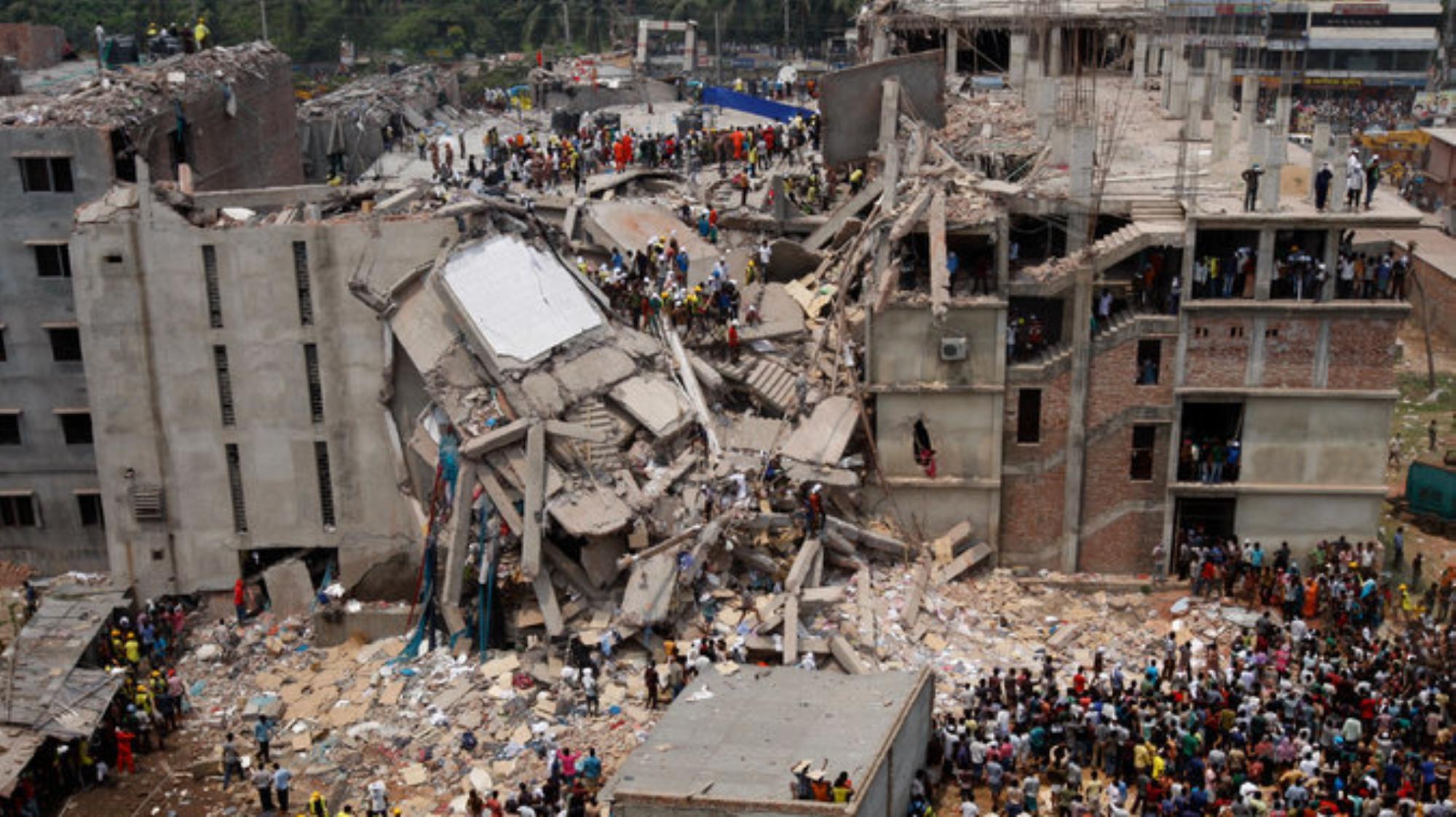38 people have been formally charged with murder in connection with the collapse of the Rana Plaza garment factory in Dhaka, Bangladesh on April 24, 2013. The collapse killed 1,130 people and injured a further 2,500 — the deadliest garment factory disaster in history. Factory owner Sohel Rana is among the 38 charged with murder; three other people are being charged with aiding his attempt to flee the incident, seemingly heading for the Indian border. Rana and 34 others appeared in court yesterday; all of them plead not guilty. Six others are fugitives and will be tried in absentia. Those charged with murder could face the death penalty if they are found guilty.
The 38 defendants — who include the owners of the five factories in the building — were previously charged with culpable homicide, which has a maximum prison term of seven years. The charges were changed to murder after it was revealed that they had forced workers into the building after warnings that it was unsafe and complaints from workers after major cracks had appeared in the building the previous day.
The Rana Plaza disaster sparked demands for change in the global fashion industry, with campaigners highlighting the plight of garment workers on very low wages in dangerous conditions being used to fuel cheap (and not so cheap) fashion for the developed world. Fashion Revolution Day was set up to commemorate the Rana Plaza collapse and call on the industry to “change the story for the people who make the world’s clothes,” rallying consumers to ask brands ‘Who made my clothes?” Its aim is to enable “fashion to become a force for good.”
Credits
Photography Abir Abdullah/European Pressphoto Agency
